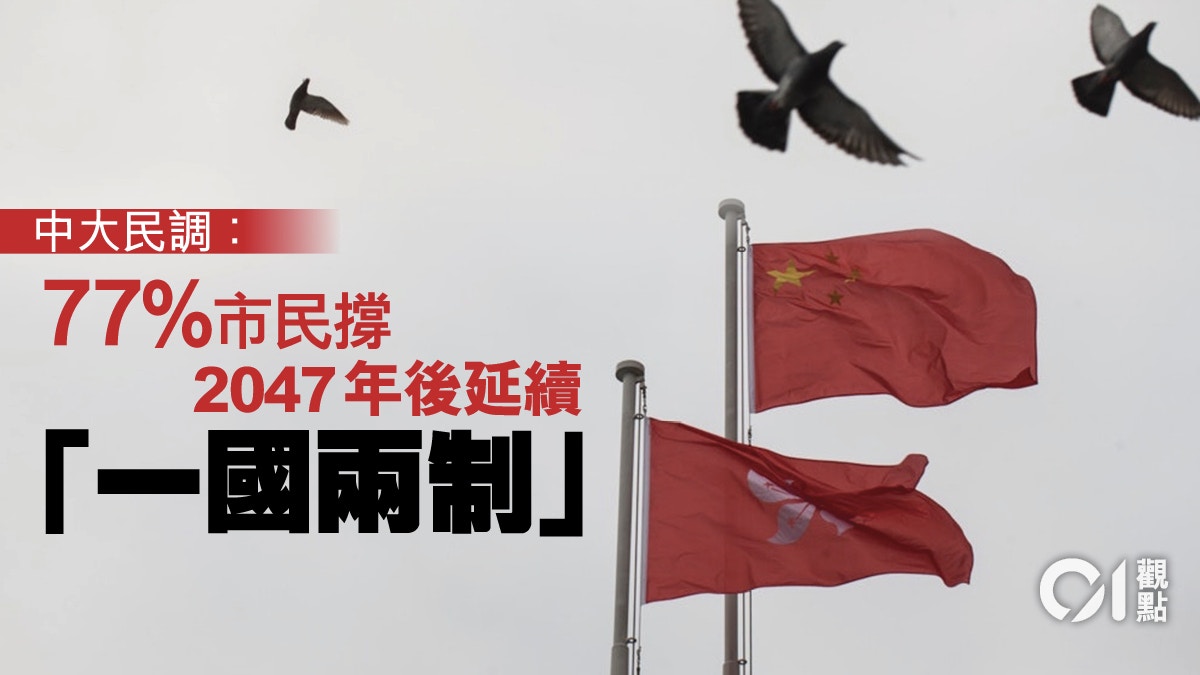01 view
Written by: Commentary Editing Room
2020-08-23 07:00
Last update date: 2020-08-23 07:00Democratic Thinking commissioned the Hong Kong Institute of Asia-Pacific Studies at CUHK to conduct a public opinion survey in June. The results showed that although 59% and 62% of the public believed that the "Two Offices" spoke out on Hong Kong affairs, and the National People’s Congress’s “Hong Kong National Security Law” was "One country, two systems" has had a bad impact, but as many as 77% believe that "one country, two systems" should be continued after 2047. The figure is an increase of 3.7 percentage points from October last year. Obviously, even though Hong Kong has undergone severe tests in the past year, and even if many people are frustrated with the prospects, mainstream public opinion still pines the future on this constitutional arrangement, reflecting the pragmatic and rational side of Hong Kong people.
For both the central government and Hong Kong, "one country, two systems" is a realistic choice. For the central government, the implementation of "One Country, Two Systems" will help promote the modernization of the national governance system and governance capabilities, which will bring many benefits: it can not only properly handle the Hong Kong issue, but also provide experience for resolving cross-strait issues, and it can even develop rapidly in the Mainland Therefore, the accumulation of a lot of contradictions provides the mainland authorities with a new perspective in understanding their own problems. For Hong Kong, the reason for supporting "One Country, Two Systems" is even simpler-citizens resist "One Country, One System", and Separation from China's sovereignty is whimsical, and "one country, two systems" is the only one.
It is undeniable that the practice of "one country, two systems" has indeed gone wrong. This is related to the different understanding of the definition and practice of "one country, two systems" by some citizens and the central government. Over the years, many Hong Kong people have become accustomed to the "one country, two systems" in which the land and port are divided. It can be said that the implementation of the "Hong Kong National Security Law" made citizens feel the real existence of the country in the SAR for the first time, and at the same time, it also pierced the romantic fantasy of "self-determination" and "Hong Kong independence".
"One country, two systems" set aside chaos
About 60% of the interviewed citizens believe that the "two offices" speak out on local affairs and that the National People's Congress often enacts the "Minato National Security Law" will have a negative impact on "one country, two systems." This evaluation is actually understandable. Because according to the principle of "Hong Kong people ruling Hong Kong and a high degree of autonomy," Hong Kong should handle its own affairs well, including internal conflicts and safeguarding national security. There is no need for the central government to bother. However, since the central government’s "action" has become a reality, all stakeholders, including the Hong Kong government, should comprehensively examine the deficiencies and actively respond to the "one country, two systems" that has been questioned in recent years.
The continuation of "one country, two systems" in 2047 cannot be without conditions, that is, this constitutional arrangement must continue to bring benefits to both mainland and Hong Kong. What should Hong Kong people do? The pragmatic approach is to rationalize yourself, and don't put yourself in a position of "confrontation" with the central government, especially don't choose the wrong team during the Sino-US Cold War-this will only increase the central government's suspicion of Hong Kong people. Only on the premise that the citizens truly accept China's sovereignty can Hong Kong not only preserve its own characteristics, but also take advantage of the development opportunities in the Mainland to promote its own development and bring more benefits to Hong Kong people, especially young people.
Questions about "one country, two systems" will certainly still arise, which requires us to deal with it wisely. Since the polls prove that many citizens have doubts, the government has to prove to the citizens that they are only worrying. This work is indeed not easy to do, but it has to be done. Of course, "explaining doubts" alone is not enough. The Hong Kong government must carry out comprehensive reforms as soon as possible to solve the problems that have long plagued people's livelihood. Only in this way can "one country, two systems" not become a scapegoat for poor governance by the government, and citizens will believe that this homeland is worthy of a settlement.
"One country, two systems, the best way out"
[01 Weekly News Editorial] Hong Kong should reflect on how to benefit "One Country, Two Systems"
[Hong Kong National Security Law] Society must return to the framework of "One Country, Two Systems"
01 view
One Country, Two Systems Hong Kong Version National Security Law 01 Viewpoint

